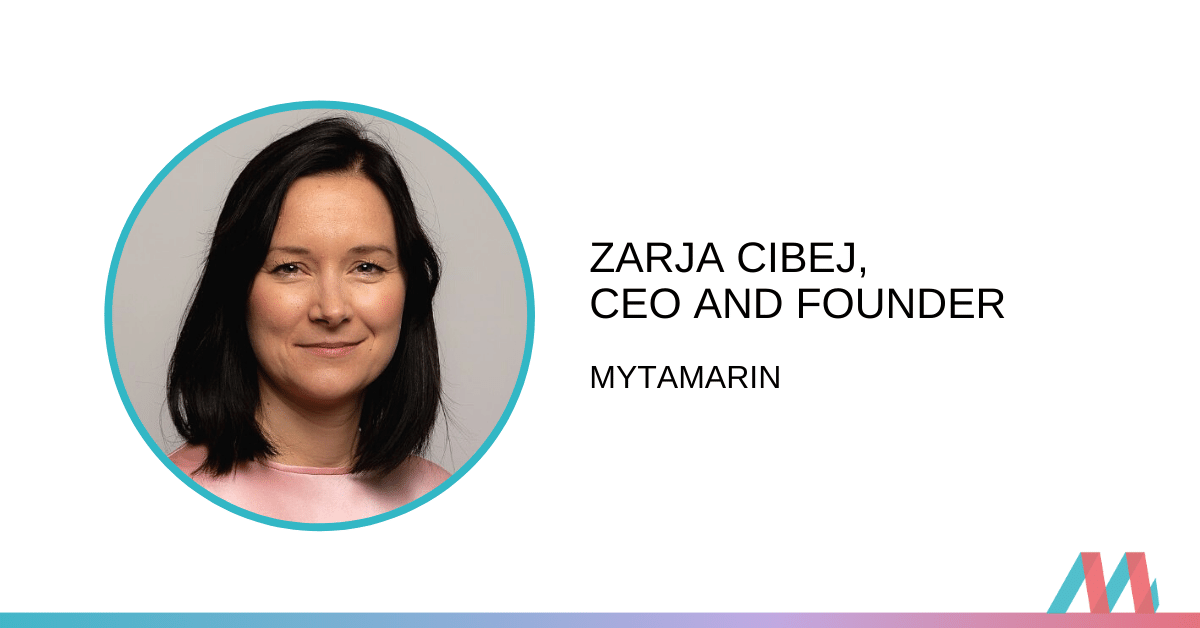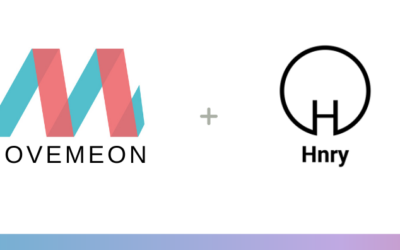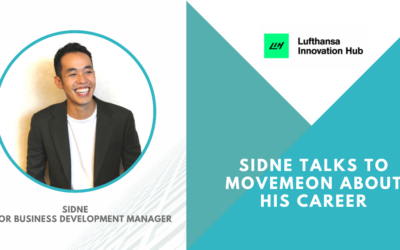Founder Zarja discusses with us how to help working parents at work, the childcare market and the benefits of learning to fail quickly
—
It would be great to hear a bit about your own career journey in your own words.
I started my career in professional services as a corporate lawyer which I loved! But I wasn’t close enough to the action, so I wanted to move to the business side. I went to business school and did an MBA at Wharton. After that, I joined BCG where I spent almost a decade as a management consultant and absolutely loved it. I moved around with BCG a lot – I was in the States then in Israel, then in the Netherlands, then back in the States and then finally in London where I have been for the last few years.
It’s in London where I had my children and a lot of people think that, especially for women, once they have children, they just want to slow down or even stop working. But for me that was never an option. I’ve always loved working.
But if I wanted to continue to work, I needed to sort out my childcare and so I encountered the challenge of childcare. That’s how my Tamarin started.
Did you always have an entrepreneurial mindset or could you see this issue and thought ‘I’m going to try and solve this?’
It was a combination really. I come from an entrepreneurial family where my father has built and run a software development company. Ever since I was a teenager I was always involved in his business and was learning from him. But at the time I thought, if you want to be an entrepreneur, you have to have an amazing idea, which I didn’t think I had.
I’ve learned two things since. First, it’s not about an amazing light bulb moment, it’s in fact all about problem-solving. And second, the idea is just 5% of the success; the 95% is hard work. But I never came across a problem that I felt passionate about until I had children.
I saw how broken the childcare market was first hand – I became curious and I started researching the market. I also started experimenting by helping my friends, my parents find nannies and nannies find jobs. And, by the end of my second maternity leave, I realized that I was more passionate about solving this problem than the problems of my big clients at BCG. It was not easy to leave BCG because I loved the job! I still love the brand, but it was such a strong pull, so I resigned and started my Tamarin full-time.
Out of interest, what type of projects were you focused on at BCG?
I was mostly in the retail and consumer goods space. One of my clients was one of the biggest grocery retailers here in the UK and I worked with them on topics such as growth operations, organizational optimization and basically all aspects of the business.
It’s interesting that you already came from that very customer-centric point of view from your consulting, so when it came to childcare, you adopted the same attitude.
You’re right. I brought into childcare quite an analytical lens, but also a very customer-centric approach.
That meant that our MVP was a very simple webpage that I coded myself in WordPress and put some money behind Google ads and pretended that it was an automated solution when it was not! But I got my first client that first day. So I realised that I was onto something.
We didn’t build this beautiful product first and then put it in front of customers. That was a really good way for us to put a viable product in front of customers, get their feedback early on, and then develop it further from there.
myTamarin has a few products including a consultancy arm, a B2B offering and the platform itself. Can you give an overview of who my Tamarin is?
So the name myTamarin comes from the tamarin monkeys that create parenting family groups to help each other when their babies are small. And this is what we do. It does take a village to raise a child. But we’ve lost that original village because of our global lifestyles. So we want to build a modern village for modern parents.
First and foremost, myTamarin is a one-stop-shop childcare platform, designed for both parents and nannies – they are our core customers. We find the best nannies, vet and train them, then match them with the right families. Then we support them with legal, HR, compliance and payment so that we create peace of mind and make this complex journey, very simple, fast, efficient, and delightful. That’s really the core of what we do.
Now on top of that, we’ve built a few interesting additional products. Firstly we now have virtual newborn support and sleep support. We actually had a virtual offering even before the pandemic. New parents are supported remotely by newborn experts and are guiding them through those early weeks or through any sleep challenges which any parent will know are the biggest thing when you have a baby. We help empower them to become the best parents they can be.
We also have the B2B arm – we offer our product to corporates so they can give it to their employees. We help working parents find care, which their employers are subsidizing. This is beneficial because balancing family and work is hard and childcare is a critical enabler in that equation. The pandemic has really exacerbated these challenges, which has opened a lot of doors for discussions with employers about this.
What have been the main pain points with starting this company?
Childcare is not a new market. It’s actually a very old market but that’s exactly the problem! It’s an old, archaic, manual market that lacks digitalization and generally technology and innovation. We’ve seen a lot of innovation in other industries over the last decade but childcare has been largely neglected. Even looking at the web pages, they look like they’re 10- 20 years old. Behind the scenes, the entire process is manual and labour intensive! Therefore parents and nannies are getting a suboptimal experience, and the service is more expensive than it should be.
Why do you think that there’s such a lack of innovation around childcare?
I have a couple of hypotheses. A lot of people feel that childcare is a female problem, although this is changing. And as we know there is a huge imbalance in terms of gender, among the investors. Investors are mostly men and we know that people like to invest into problems or industries that they’re familiar with and can empathize with. This has definitely changed over the last few years, but I think there has been a lag of investors catching up with the opportunities in the childcare market.
Also, childcare is quite a high touch product. Childcare is typically the second largest expense of a family after a mortgage – it’s huge. And it’s about your most prized possession – your children. You’re not just going to go into an app and select your child’s nursery or a nanny like you would call an Uber driver. So much more is at stake. Very few people would buy a house without seeing it multiple times and having multiple conversations. Childcare is similar and so we don’t want to fully automate the entire process just yet, so to some investors it seems less obvious as an investment opportunity because it doesn’t follow exactly the same model as SaaS businesses.
But that’s definitely changing. We’re seeing more investment into this market over the last few years.
How do you approach creating a culture for the team?
When we defined our culture before the pandemic hit, what really stood out was empathy. The way we define empathy is ‘we don’t just listen, we hear you’. That is meant for our parents, for our nannies and for each other. This is how we treat our parents. This is how we treat our nannies. This is how we treat each other in our team.
During lockdowns, we found completely remote working at the beginning slightly challenging. For us, we realized that the remote was hard because we are in that stage of the business where we need to collaborate a lot and discuss new ideas and improvements all the time. If someone didn’t ask a question for six hours, that’s time lost and can impact the customer experience. We found that what works for us remotely is that we have this virtual office, which means that we have cameras on for the entire day. If someone has a question, they’ll ask; if someone has a suggestion, we’ll discuss it then. The entire team recognizes we’re just so much more productive that way.
With the team, how do you approach the topic of diversity and inclusion?
Interestingly, we actually have the opposite challenge to most companies as we are basically an all-female team. We’re having a really hard time attracting men. We find that women and especially mothers with younger children are very drawn to what we do because they can very much empathize. We’ve tried, and the reality is we probably forced a few male hires just to have men. And it actually didn’t work out. I think that’s perhaps one of our learnings is that you have to strive for diversity, but you can’t really force it.
Do you have any advice to other companies about making sure they are inclusive for working parents, what would you advise them to do?
We know that working parents are on average very loyal, efficient and experienced employees, and employers should therefore try to retain them. We know from our own research that the most important things for working parents are flexibility and child care. If they don’t have childcare, there’s no way that they’ll be able to work.
In London, parents are spending anywhere from £20,000 more a year on childcare full. Corporates need to understand that they need to give parents time and resources, either educational or indeed financial. Some corporates in the US have started giving working parents some cash allowances to address specifically childcare.
And how about in the startup space?
Parents need flexibility. But the challenge with flexibility, or actually any benefits, according to our research, is that employers are struggling with benefits for working parents only because they don’t want to actively positively discriminate. By providing childcare support to working parents, you’re giving them a bit more than you’re giving to others. So employers need to find the right balance of benefits and support for everyone.
We’re not suggesting that every employer should financially support the parents, but empathy, understanding, support and education around childcare options are quick wins. Financial support is the cherry on top.
myTamarin has done research about how the pandemic and how it affects working parents. Why did you do that and what were the main takeaways?
As a parent myself and through all our clients, we have felt the pressure of the pandemic and this new setup on working parents quite acutely. At the same time, we felt that this pressure and struggles just weren’t as obvious to other people that were not in this space. We were trying to quantify how no childcare and no schools was affecting working parents.
At the end of April, the results were quite bleak. The majority of parents were just not coping! This was something that we wanted to make sure their employers understood. Parents were doing everything to NOT show that they were struggling because they didn’t want to be furloughed or have their promotion delayed. But behind the “Zoom curtain” the reality was different. We wanted to show that blind spot to employers.
And we empathize with employers too because it was such a massive change. How do you actually move everything online and make sure your bottom line is protected too? It was hard.
We did the second part over the second research toward the end of last year and unfortunately, nothing had changed. Employers were still offering this unprecedented level of flexibility, but for parents, that just wasn’t enough. Parents need childcare. If they don’t have childcare, they can’t do the work. For working parents, childcare is a very much needed infrastructure, just like public transport is to all of us. Explaining the magnitude of this to employers was really powerful.
If you have to give other founders one piece of advice, what would it be?
Get comfortable with failing. The only way you can actually get feedback, learn and progress is by offering your product to the market, and basically letting potential users throw darts at you. And that’s painful! We don’t want to go out there to be told this is not right. We go out there because we want to create something really amazing! But you really need your users or potential users to participate in the building of your product. My personal barometer is if I’m not a little bit ashamed of what I’m putting out there, I’m probably too slow.
– Thanks so much for your time, Zarja!
Movemeon supports organisations to hire all over the world

Click here for more insight into other organisations hiring on Movemeon.com



